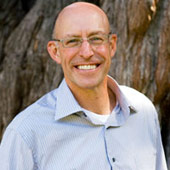-
STANDING TALL IN THE GRASS
It takes a village to raise a Let's be Frank dog. Though the phrase may be clichéd, the sentiment is genuine. The pioneering work of these residents has inspired us to create our dogs gone good. We appreciate and respect the work they have done—and continue to do—to create a delicious, healthy and sustainable food system.
-
Wendell Berry
Larry first heard Wendell speak at a conference on organic farming and the future in 2004. Berry's was the lone voice warning us that we could not feed the world through organic farming, because, as he pointed out, there simply weren't enough people who know how to farm this way. Through his poems, essays and life's work, Berry has sparked an ongoing conversation about the life he values, which focuses on sustainable agriculture, use of appropriate technologies, healthy rural communities, connection to place, the pleasures of good food, husbandry, local economics, and the interconnectedness of life.
Berry's words motivated us to build a business that would enable long-time farmers to stay on their land and encourage newcomers to the world of sustainable farming and ranching. His concept of "solving for pattern," coined in the essay of the same name, is the process of finding solutions that solve multiple problems while minimizing the creation of new ones. This is a principle which guides our work at Let's be Frank.
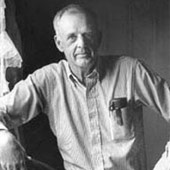
-
Joel Salatin
In 1961, William and Lucille Salatin moved their young family to Virginia's Shenandoah Valley, purchasing the most worn-out, eroded, abused farm in the area near Staunton. Disregarding conventional farming wisdom, they planted trees, built huge compost piles, dug ponds, and invented portable sheltering systems to produce all their animals on perennial prairie polyculture.
Today, their farm arguably represents America's premier non-industrial food production oasis. Joel Salatin, William's son and the current owner, invites like-minded folks to join in the farm's mission: to develop emotionally, economically, and environmentally-enhancing agricultural enterprises and facilitate their duplication throughout the world.
One of the battles that Joel fights on behalf of small farmers and producers everywhere is to find a way for sustainability and profitability co-exist. His essay "Everything I Do is Illegal" is a manifesto for changing our food system to a model based on fairness to family farmers, a healthy planet and happy animals, suggesting the elimination of many laws and regulations that support big agriculture and make it next to impossible for small farmers to flourish.
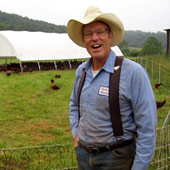
-
Andy Griffin & Julia Wiley
Andy Griffin and his wife Julia Wiley live on a thirty-two acre plot of vegetables near Hollister, California, which they call Mariquita Farms. They are among our most passionate advocates of sustainable farming and tirelessly devote their time and energy to educate us about all its facets, through personal discussions with their CSA customers, speaking engagements, written articles and their free, weekly newsletter, the Ladybug Letter, and blog http://www.ladybugletter.com/.
Andy's words touch on history, culture, politics, and art, and they are all firmly rooted in the soil. We try to purchase seasonal produce from Mariquita Farms and are grateful that Andy and Julia feed our souls even when they are not feeding our bodies.
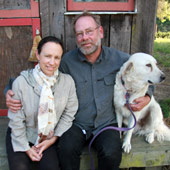
-
Frank Reese
Frank Reese is a fourth generation farmer and master breeder of heritage turkeys., which have been made nearly extinct through the rise of industrial turkey production. He has dedicated his life to resurrecting and preserving true breeds rather than losing them to industrialized, artificially inseminated and factory-farmed birds. Heritage breeds, which include the Bronze, Naragansett, Bourbon Red, White Holland, and Black Spanish, are raised according to their natural growth rates, can mate naturally , and feature a leaner, darker, richer meat that is more representative of turkeys in the wild.
Frank can trace his heritage turkey bloodlines to 1917 and maintains these birds for genetic diversity in the future. Through his work, Frank has helped to inspire and educate farmers, chefs, and consumers about the importance and delicious benefits of carefully-tended heritage breeds. His commitment to heritage breeds and humane animal practices also inspires our cattle and hog ranchers.
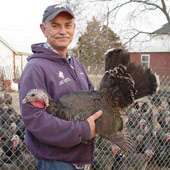
-
Michael Pollan
Michael Pollan is a scientific journalist who, in the late 1990s, turned his attention to the increasingly disturbing trends in the American food production system. Through his work, which is best represented in the best-selling book The Omnivore's Dilemma, Pollan introduced many Americans to the drawbacks of a "corn-based food system". He suggests that there is a fundamental tension between the logic of nature and the logic of human industry, that the way we eat represents our most profound engagement with the natural world, and that industrial eating obscures crucially important ecological relationships and connections.
As we do, Pollan finds hope in Joel Salatin's Polyface Farm, which he sees as a model of sustainability in commercial farming. Through his increasingly significant platform of articles, lectures, media appearances, and books, Pollan has helped to broaden the audience for our mission of promoting pasture-based livestock. A professional colleague and personal friend, we are grateful for his commitment to a food system based on sunshine in a bun.
